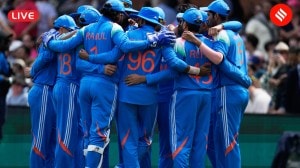Starr seeks immunity under `informers privilege’
WASHINGTON, August 13: Trying to halt a judge's investigation into whether he leaked grand jury evidence to the news media, independent c...

WASHINGTON, August 13: Trying to halt a judge’s investigation into whether he leaked grand jury evidence to the news media, independent counsel Kenneth Starr has suggested that his contacts with reporters be treated the same as those with confidential informers.
Starr argued that he could not disclose evidence of his office’s contacts with reporters “without revealing confidential investigative information,” court documents now made public show.
To bolster the argument, the prosecutor cited a 1981 court case that established an “informers privilege” that allows the Government to keep secret the identity of a person who furnished information about criminal activities to protect them from possible retribution.
“Long recognised as common law, the informer’s privilege serves important individual and societal interests in protecting the anonymity of citizens who cooperate in law enforcement,” Starr wrote in quoting the 17-year-old case.
He was seeking to block US district court judge Norma HollowayJohnson’s order that he turn over evidence of his office’s contacts with reporters. Sections of Starr’s arguments were quoted in the court papers released last week that detail the secretly fought battle over alleged leaks. Charles Bakaly, Starr’s spokesman, declined comment yesterday.
But legal sources outside the prosecutor’s office familiar with the proceedings said Starr specifically applied the argument to reporters, saying he wanted to keep confidential the information received from reporters and their identities. The legal sources demanded anonymity.Starr’s suggestion was criticised by two former independent counsels. It also raised concerns among news media experts.
US President Bill Clinton’s lawyer, who is battling Starr in the leaks case, scoffed at the argument in his own reply to the court. Attorney David Kendall said most of the examples that Johnson found were evidence of improper leaks which occurred at a time early in the Lewinsky investigation when prosecutors, not reporters, possessedthe most information.
“A number of the most egregious apparent violations occurred in the very early days of the investigation and suggests little prospect that the Press was providing information to Starr’s office,” Kendall wrote. Starr has denied violating court rules that prohibit prosecutors from disclosing the evidence and proceedings of a grand jury investigation. He said while he did not violate those rules, his office needed to talk to reporters at times to correct misinformation that could affect the investigation.
But judge Johnson ruled that there was evidence of “serious and repetitive” disclosures of secret grand jury information from his investigation and ordered Starr to face a hearing to argue why he shouldn’t be found in contempt of court. Such a proceeding could lead to penalties against prosecutors. Starr appealed the ruling, and a three-judge panel concluded judge Johnson should proceed with the hearing but did not have to turn over evidence to Clinton’s lawyers during theproceeding that might harm Starr’s ongoing investigation of an alleged affair and coverup.
The judge’s ruling on the leaks was prompted by a complaint filed by Clinton’s lawyers accusing Starr’s office of being the source of the leaks and asking that prosecutors be found in contempt of court.





- 01
- 02
- 03
- 04
- 05


























